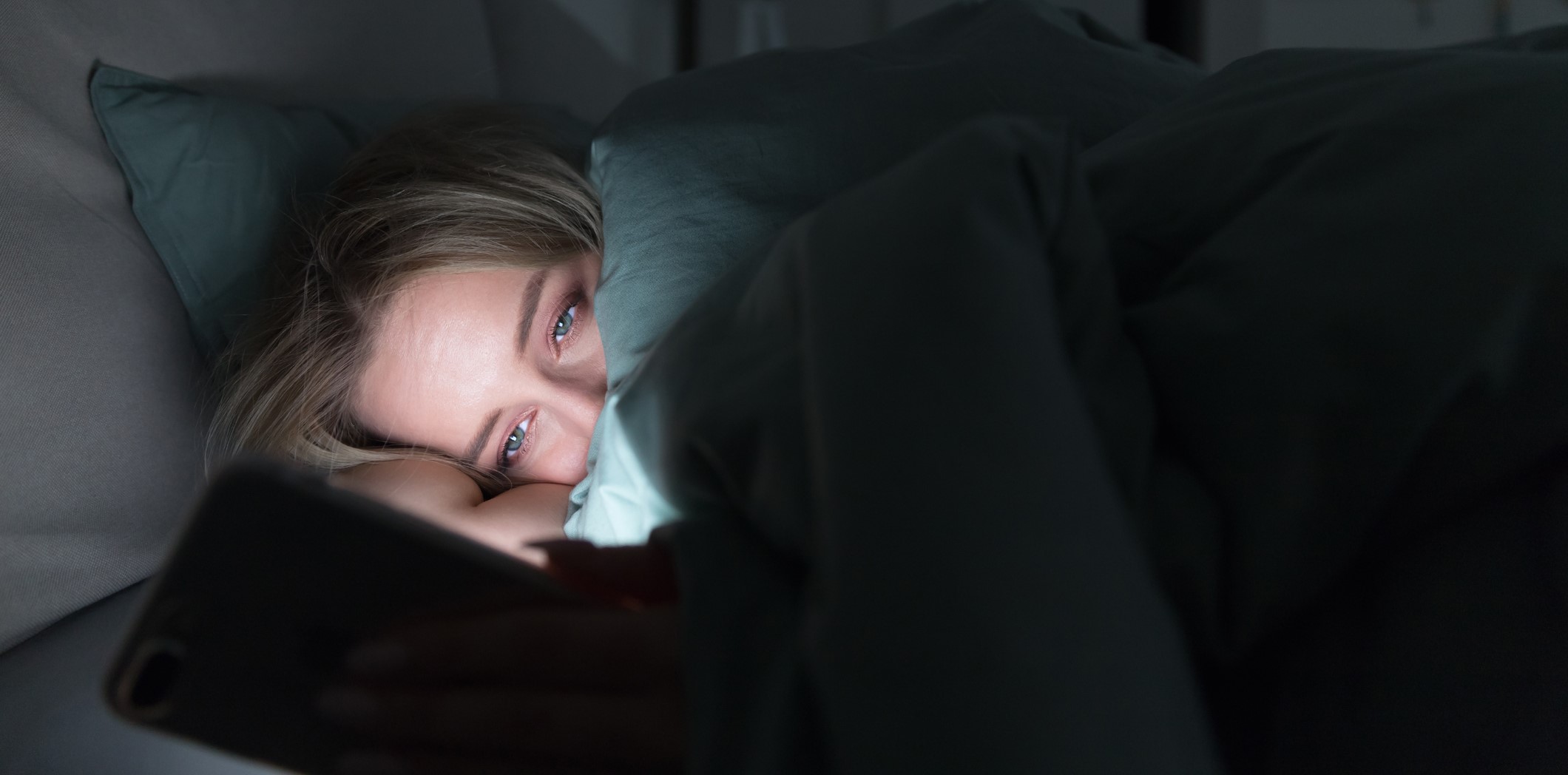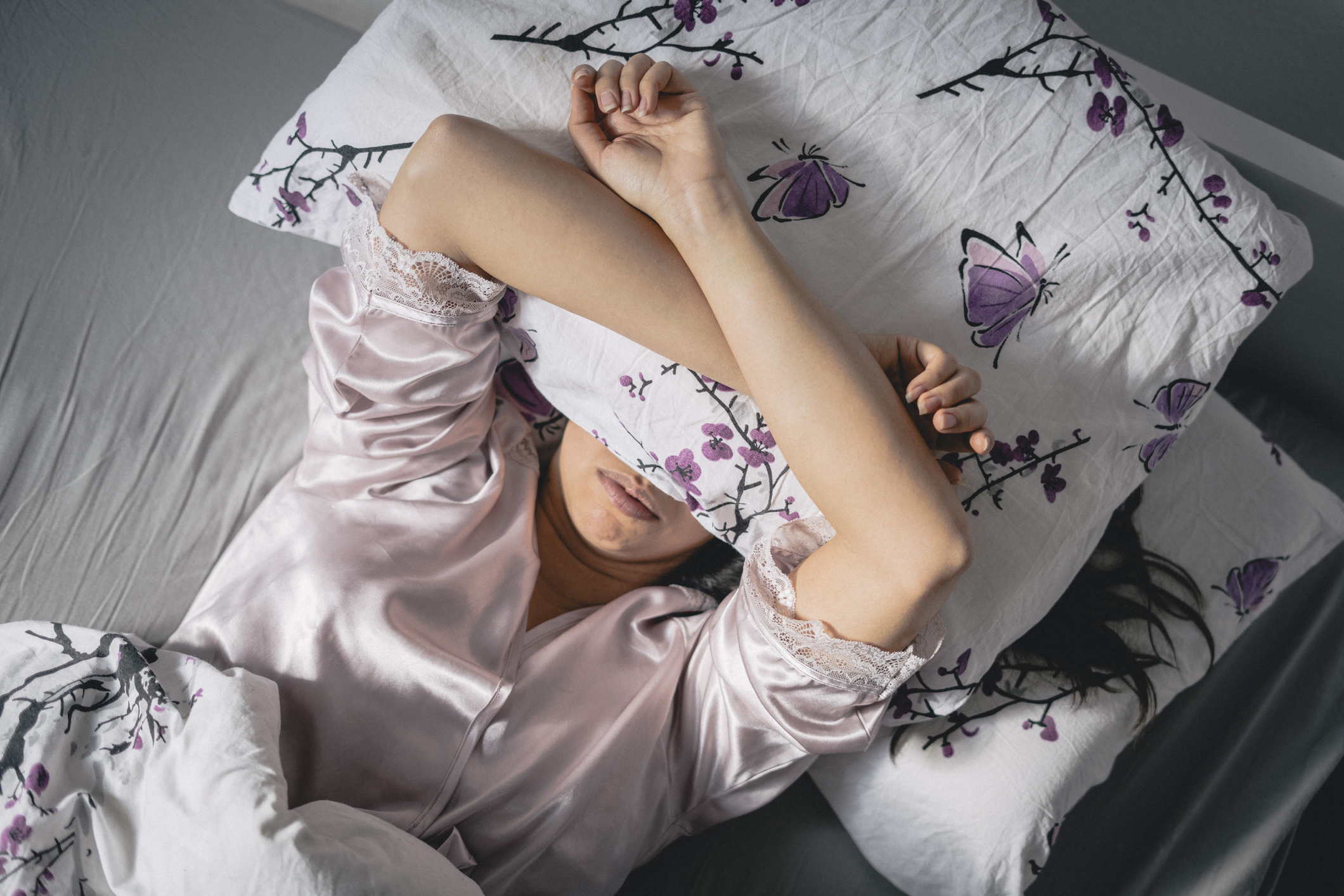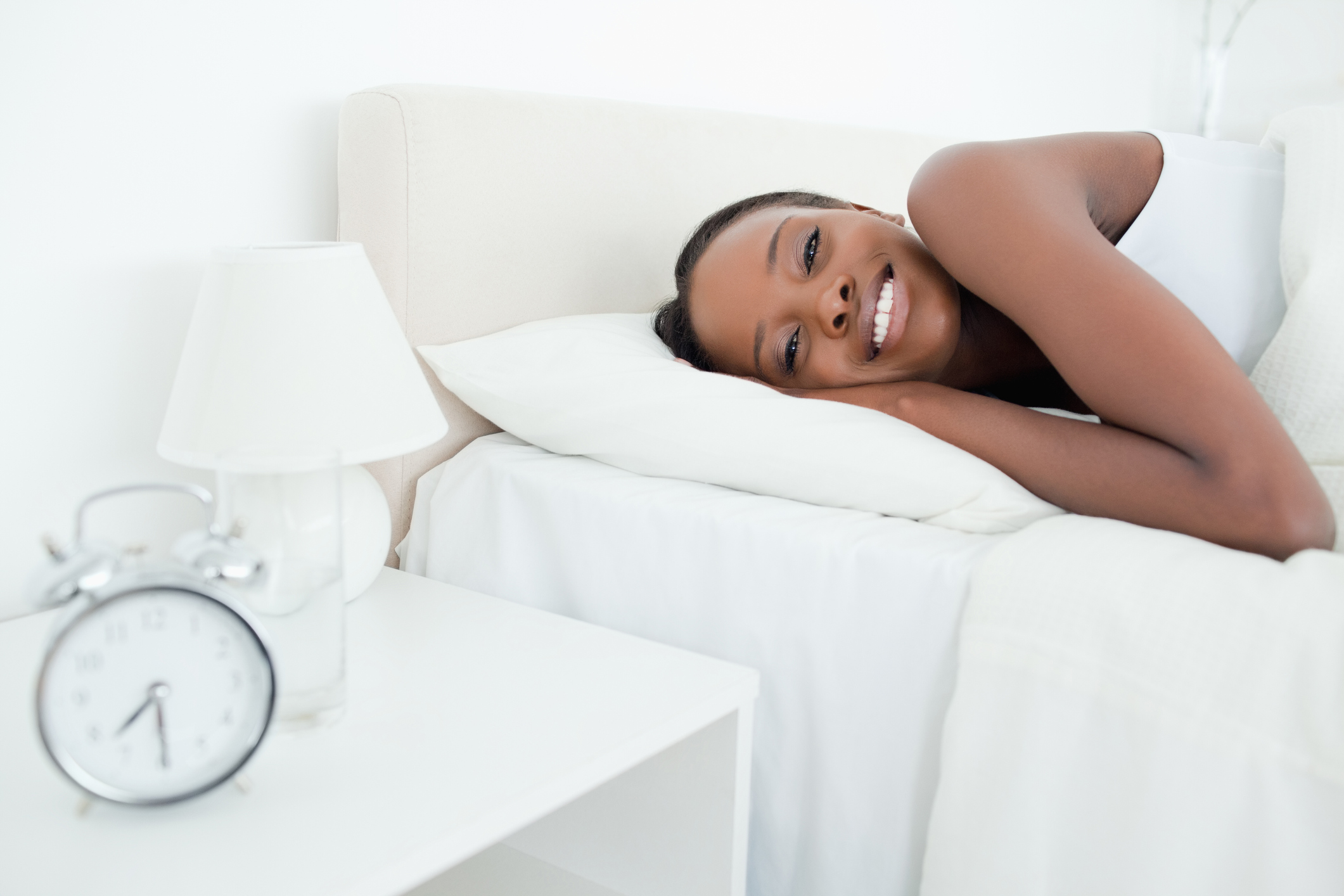Why do I have anxiety at night?
Is anxiety at night getting in the way of your beauty sleep? Here's why

We'll be real with you: Our collective mental health hasn't been all that, well, healthy this past year. According to the Anxiety & Depression Association of America, anxiety disorders affect more than 40 million adults in the U.S., and for many, their symptoms only get worse at night. Racing thoughts and feelings of worry, panic, and fear can stop your body from resting, relaxing, and falling into a deep sleep.
Thankfully, there are many ways to fight anxiety at night. Some people have great success using the best meditation apps or crystals for anxiety to calm down, or developing a solid nighttime routine.
But while figuring out how to get better sleep is important, it's also important to understand why you may have anxiety at night so that you can get to the root of the problem.
What causes anxiety at night?
It's common for people with anxiety to have difficulty sleeping. Part of the problem is that the two can create a vicious cycle: sleep deprivation can make you feel anxious, and then you start feeling anxious about your sleep deprivation.
You can experience anxiety at night for a number of reasons:
1. Mental hyperarousal
It's not surprising that so many people who suffer from anxiety also suffer from sleep disorders or just have a harder time getting to sleep and staying asleep. According to the Cleveland Clinic, sleep disorders affect more than 50-percent of patients with generalized anxiety disorder.
Difficulty sleeping may stem from:
- Racing thoughts
- Stress and worry
- Anticipation of the next day
These "stressors" can cause an adrenaline rush that makes it harder to sleep. To make matters worse, anxiety can cause you to ruminate about your fears and concerns at night when you're trying to sleep. This stress-related cognitive-emotional reactivity, a state of mental hyperarousal, has been found to be a key component in insomnia disorder.
2. Anxiety about not falling asleep
You can't fall asleep because you're worried about something. You peek over at the clock. It's 3 am. Now you're stressed that you're still not asleep and have to be up in a few hours.
For many people, this scenario plays out every night of the week. Eventually, they develop anticipatory anxiety about going to bed. In other words, they're anxious about going to bed because they're worried that they'll have anxiety about sleeping. It's literally anxiety about having anxiety.
Anticipatory anxiety can create a vicious cycle. You become so anxious that you're going to have anxiety, so it becomes a self-fulfilling prophecy.
3. Sleep deprivation
Lack of sleep can also cause anxiety. A study published in the Journal of Sleep Research shows that anxiety can affect deep and REM sleep states. Anxiety can also lead to nightmares or disturbing dreams that can reinforce negative associations with sleep.
There's also evidence—for example, this study in the Journal of Neuroscience—that people with anxiety tend to be more sensitive to the effects of sleep deprivation. Lack of sleep can actually worsen anxiety symptoms.

- Therapy vs counseling: what's the difference?
How to combat anxiety at night
Anxiety is one of the most common mental health issues in the country, but it's also highly treatable. Many people respond very well to treatment and therapy. If you're suffering from anxiety at night, talk to your doctor or therapist. There is help out there. There's no reason to be ashamed, and there's no reason to suffer.
1. Cognitive Behavioral Therapy
Cognitive Behavioral Therapy, or CBT, is a common and effective treatment for anxiety disorders. With CBT, the goal is to change thinking patterns and transform negative thoughts into positive ones, says the American Psychological Association. Although effective, it can take 16 weeks or more to see results with CBT.
2. Treating underlying conditions
Sometimes, nighttime anxiety, or anxiety in general, is caused by an underlying medical condition. Diabetes, heart disease, chronic pain, irritable bowel syndrome (IBS), and even hyperthyroidism have been linked with anxiety.
If an underlying medical condition is causing your anxiety, treating that condition is the first step to getting rid of your nighttime anxiety.
3. Mindfulness meditation
Mindfulness can help calm and quiet the mind, allowing you to fall into a deep sleep, says the Sleep Health Association. It can be especially helpful if you're worried about not being able to fall asleep.
Mindfulness meditation can help you become more aware of your thoughts and let them go instead of ruminating. With practice, you learn to allow disturbing thoughts, like fear of not being able to sleep, float away like clouds in the sky.
If you're not sure where to start, try downloading a meditation tool like the Calm app that can guide you through your first mindfulness session, or taking up journaling for beginners to get all of those bad thoughts out of your brain and onto the page.

4. Establish a sleep routine
Developing a healthy sleep routine and sticking to it can help with anxiety at night.
- Go to sleep at the same time every night
- Wake up at the same time every morning
- Create a comfortable and soothing sleep environment
- Make sure your bedroom is cool (65 degrees Fahrenheit is optimal for sleeping)
- Put the phone away and eliminate distractions
5. Stay active
Exercise can help you sleep better and for longer, especially if you set your perfect workout schedule for early or late afternoon.
Expending all of that pent-up energy can help you feel more tired before bed. Exercise itself can also help combat anxiety symptoms. It keeps your mind distracted, boosts serotonin, and helps alleviate muscle tension.
Anxiety at night is common, but you don't have to live with it. Whether it's caused by racing thoughts, an underlying medical condition, or stressful life events, you have the power to kick anxiety to the curb and finally enjoy the sleep your body wants and needs.
The My Imperfect Life team is all about helping you navigate your world. We bring you the latest on fashion, beauty, travel and wellness so you can live life on your terms.